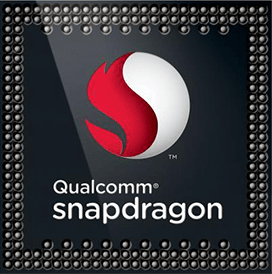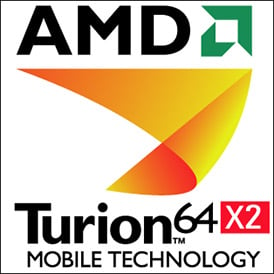Qualcomm Snapdragon 8c vs AMD Turion 64 MK-36
Last updated:
CPU comparison with benchmarks

|

|
|
| Qualcomm Snapdragon 8c | AMD Turion 64 MK-36 | |
CPU comparisonQualcomm Snapdragon 8c or AMD Turion 64 MK-36 - which processor is faster? In this comparison we look at the differences and analyze which of these two CPUs is better. We compare the technical data and benchmark results.
The Qualcomm Snapdragon 8c has 8 cores with 8 threads and clocks with a maximum frequency of 2.45 GHz. Up to 16 GB of memory is supported in 4 memory channels. The Qualcomm Snapdragon 8c was released in Q4/2019. The AMD Turion 64 MK-36 has 1 cores with 1 threads and clocks with a maximum frequency of 2.00 GHz. The CPU supports up to 8 GB of memory in 2 memory channels. The AMD Turion 64 MK-36 was released in Q3/2006. |
||
| Qualcomm Snapdragon (102) | Family | AMD Turion (1) |
| Qualcomm Snapdragon 8c (1) | CPU group | AMD Turion 64 MK (1) |
| 1 | Generation | 2 |
| Kryo 490 | Architecture | Richmond |
| Mobile | Segment | Mobile |
| -- | Predecessor | -- |
| -- | Successor | -- |
|
|
||
CPU Cores and Base FrequencyThe Qualcomm Snapdragon 8c is a 8 core processor with a clock frequency of 2.45 GHz. The AMD Turion 64 MK-36 has 1 CPU cores with a clock frequency of 2.00 GHz. |
||
| Qualcomm Snapdragon 8c | Characteristic | AMD Turion 64 MK-36 |
| 8 | Cores | 1 |
| 8 | Threads | 1 |
| hybrid (big.LITTLE) | Core architecture | normal |
| No | Hyperthreading | No |
| No | Overclocking ? | No |
| 2.45 GHz 4x Kryo 490 Gold |
A-Core | 2.00 GHz |
| 1.80 GHz 4x Kryo 490 Silver |
B-Core | -- |
Artificial Intelligence and Machine LearningProcessors with the support of artificial intelligence (AI) and machine learning (ML) can process many calculations, especially audio, image and video processing, much faster than classic processors. Algorithms for ML improve their performance the more data they have collected via software. ML tasks can be processed up to 10,000 times faster than with a classic processor. |
||
| Qualcomm Snapdragon 8c | Characteristic | AMD Turion 64 MK-36 |
| Qualcomm AI engine | AI hardware | -- |
| Hexagon 690 @ 7 TOPS | AI specifications | -- |
Internal GraphicsThe integrated graphics unit of a processor is not only responsible for the pure image output on the system, but can also significantly increase the efficiency of the system with the support of modern video codecs. |
||
| Qualcomm Adreno 675 | GPU | no iGPU |
| 0.25 GHz | GPU frequency | -- |
| 0.59 GHz | GPU (Turbo) | -- |
| 5 | GPU Generation | -- |
| 7 nm | Technology | |
| 1 | Max. displays | |
| 7 | Compute units | -- |
| 672 | Shader | -- |
| No | Hardware Raytracing | No |
| No | Frame Generation | No |
| 4 GB | Max. GPU Memory | -- |
| 12.0 | DirectX Version | -- |
Hardware codec supportA photo or video codec that is accelerated in hardware can greatly accelerate the working speed of a processor and extend the battery life of notebooks or smartphones when playing videos. |
||
| Qualcomm Adreno 675 | GPU | no iGPU |
| Decode | Codec h265 / HEVC (8 bit) | No |
| Decode | Codec h265 / HEVC (10 bit) | No |
| Decode / Encode | Codec h264 | No |
| Decode | Codec VP9 | No |
| Decode / Encode | Codec VP8 | No |
| No | Codec AV1 | No |
| Decode | Codec AVC | No |
| Decode | Codec VC-1 | No |
| Decode / Encode | Codec JPEG | No |
Memory & PCIeThe Qualcomm Snapdragon 8c supports a maximum of 16 GB of memory in 4 memory channels. The AMD Turion 64 MK-36 can connect up to 8 GB of memory in 2 memory channels. |
||
| Qualcomm Snapdragon 8c | Characteristic | AMD Turion 64 MK-36 |
| LPDDR4X-4266 | Memory | DDR2-800 |
| 16 GB | Max. Memory | 8 GB |
| 4 (Quad Channel) | Memory channels | 2 (Dual Channel) |
| 34.1 GB/s | Max. Bandwidth | 12.8 GB/s |
| No | ECC | No |
| 2.00 MB | L2 Cache | 0.50 MB |
| 3.00 MB | L3 Cache | -- |
| -- | PCIe version | -- |
| -- | PCIe lanes | -- |
| -- | PCIe Bandwidth | -- |
Thermal ManagementThe TDP (Thermal Design Power) of a processor specifies the required cooling solution. The Qualcomm Snapdragon 8c has a TDP of 7 W, that of the AMD Turion 64 MK-36 is 31 W. |
||
| Qualcomm Snapdragon 8c | Characteristic | AMD Turion 64 MK-36 |
| 7 W | TDP (PL1 / PBP) | 31 W |
| -- | TDP (PL2) | -- |
| -- | TDP up | -- |
| -- | TDP down | -- |
| -- | Tjunction max. | -- |
Technical detailsThe Qualcomm Snapdragon 8c has a 5.00 MB cache, while the AMD Turion 64 MK-36 cache has a total of 0.50 MB. |
||
| Qualcomm Snapdragon 8c | Characteristic | AMD Turion 64 MK-36 |
| 7 nm | Technology | 90 nm |
| Chiplet | Chip design | Unknown |
| Armv8-A (64 bit) | Instruction set (ISA) | x86-64 (64 bit) |
| -- | ISA extensions | MMX, SSE, SSE2, SSE3, Extended 3DNow! |
| -- | Socket | S1 |
| None | Virtualization | AMD-V |
| No | AES-NI | No |
| Android, Windows 10 (ARM) | Operating systems | |
| Q4/2019 | Release date | Q3/2006 |
| -- | Release price | -- |
| show more data | show more data | |
Rate these processors
Average performance in benchmarks
⌀ Single core performance in 1 CPU benchmarks
⌀ Multi core performance in 1 CPU benchmarks
Geekbench 5, 64bit (Single-Core)
Geekbench 5 is a cross plattform benchmark that heavily uses the systems memory. A fast memory will push the result a lot. The single-core test only uses one CPU core, the amount of cores or hyperthreading ability doesn't count.
|
|
Qualcomm Snapdragon 8c
8C 8T @ 2.45 GHz |
||
|
|
AMD Turion 64 MK-36
1C 1T @ 2.00 GHz |
||
Geekbench 5, 64bit (Multi-Core)
Geekbench 5 is a cross plattform benchmark that heavily uses the systems memory. A fast memory will push the result a lot. The multi-core test involves all CPU cores and taks a big advantage of hyperthreading.
|
|
Qualcomm Snapdragon 8c
8C 8T @ 2.45 GHz |
||
|
|
AMD Turion 64 MK-36
1C 1T @ 2.00 GHz |
||
Cinebench R23 (Single-Core)
Cinebench R23 is the successor of Cinebench R20 and is also based on the Cinema 4 Suite. Cinema 4 is a worldwide used software to create 3D forms. The single-core test only uses one CPU core, the amount of cores or hyperthreading ability doesn't count.
|
|
Qualcomm Snapdragon 8c
8C 8T @ 2.45 GHz |
||
|
|
AMD Turion 64 MK-36
1C 1T @ 2.00 GHz |
||
Cinebench R23 (Multi-Core)
Cinebench R23 is the successor of Cinebench R20 and is also based on the Cinema 4 Suite. Cinema 4 is a worldwide used software to create 3D forms. The multi-core test involves all CPU cores and taks a big advantage of hyperthreading.
|
|
Qualcomm Snapdragon 8c
8C 8T @ 2.45 GHz |
||
|
|
AMD Turion 64 MK-36
1C 1T @ 2.00 GHz |
||
Cinebench R20 (Single-Core)
Cinebench R20 is the successor of Cinebench R15 and is also based on the Cinema 4 Suite. Cinema 4 is a worldwide used software to create 3D forms. The single-core test only uses one CPU core, the amount of cores or hyperthreading ability doesn't count.
|
|
Qualcomm Snapdragon 8c
8C 8T @ 2.45 GHz |
||
|
|
AMD Turion 64 MK-36
1C 1T @ 2.00 GHz |
||
Cinebench R20 (Multi-Core)
Cinebench R20 is the successor of Cinebench R15 and is also based on the Cinema 4 Suite. Cinema 4 is a worldwide used software to create 3D forms. The multi-core test involves all CPU cores and taks a big advantage of hyperthreading.
|
|
Qualcomm Snapdragon 8c
8C 8T @ 2.45 GHz |
||
|
|
AMD Turion 64 MK-36
1C 1T @ 2.00 GHz |
||
iGPU - FP32 Performance (Single-precision GFLOPS)
The theoretical computing performance of the internal graphics unit of the processor with simple accuracy (32 bit) in GFLOPS. GFLOPS indicates how many billion floating point operations the iGPU can perform per second.
|
|
Qualcomm Snapdragon 8c
Qualcomm Adreno 675 @ 0.59 GHz |
||
|
|
AMD Turion 64 MK-36
@ 0.00 GHz |
||
Cinebench R15 (Single-Core)
Cinebench R15 is the successor of Cinebench 11.5 and is also based on the Cinema 4 Suite. Cinema 4 is a worldwide used software to create 3D forms. The single-core test only uses one CPU core, the amount of cores or hyperthreading ability doesn't count.
|
|
Qualcomm Snapdragon 8c
8C 8T @ 2.45 GHz |
||
|
|
AMD Turion 64 MK-36
1C 1T @ 2.00 GHz |
||
Cinebench R15 (Multi-Core)
Cinebench R15 is the successor of Cinebench 11.5 and is also based on the Cinema 4 Suite. Cinema 4 is a worldwide used software to create 3D forms. The multi-core test involves all CPU cores and taks a big advantage of hyperthreading.
|
|
Qualcomm Snapdragon 8c
8C 8T @ 2.45 GHz |
||
|
|
AMD Turion 64 MK-36
1C 1T @ 2.00 GHz |
||
Performance for Artificial Intelligence (AI) and Machine Learning (ML)
Processors with the support of artificial intelligence (AI) and machine learning (ML) can process many calculations, especially audio, image and video processing, much faster than classic processors. The performance is given in the number (trillions) of arithmetic operations per second (TOPS).
|
|
Qualcomm Snapdragon 8c
8C 8T @ 2.45 GHz |
||
|
|
AMD Turion 64 MK-36
1C 1T @ 2.00 GHz |
||
Devices using this processor |
|
| Qualcomm Snapdragon 8c | AMD Turion 64 MK-36 |
| Unknown | Unknown |
Popular comparisons containing this CPUs
back to index

